The Souls-like genre has over-saturated the gaming market, with a new one popping up every other month. Most are poorly implemented, with only a few being able to truly shine. AI Limit is the latest release to come out of PlayStation's China Hero Project, and is actually a competent contender in a sea of indie Souls-like titles. At first glance, you might think this is Code Vein 2.0, but it is actually Sense Games’ debut project!
The game is set in a distant future where civilization teeters on the brink of extinction following ecological collapse and devastating wars. Humanity's last survivors cling to existence in Havenswell, the final remaining city, driven by legends of a sanctuary called Elysium. You play as Arrisa, a synthetic life form known as a Blader, set out on a journey to recover her memories and uncover the truth about her origins. While the plot itself isn't groundbreaking, the character-driven approach makes the story more emotional.
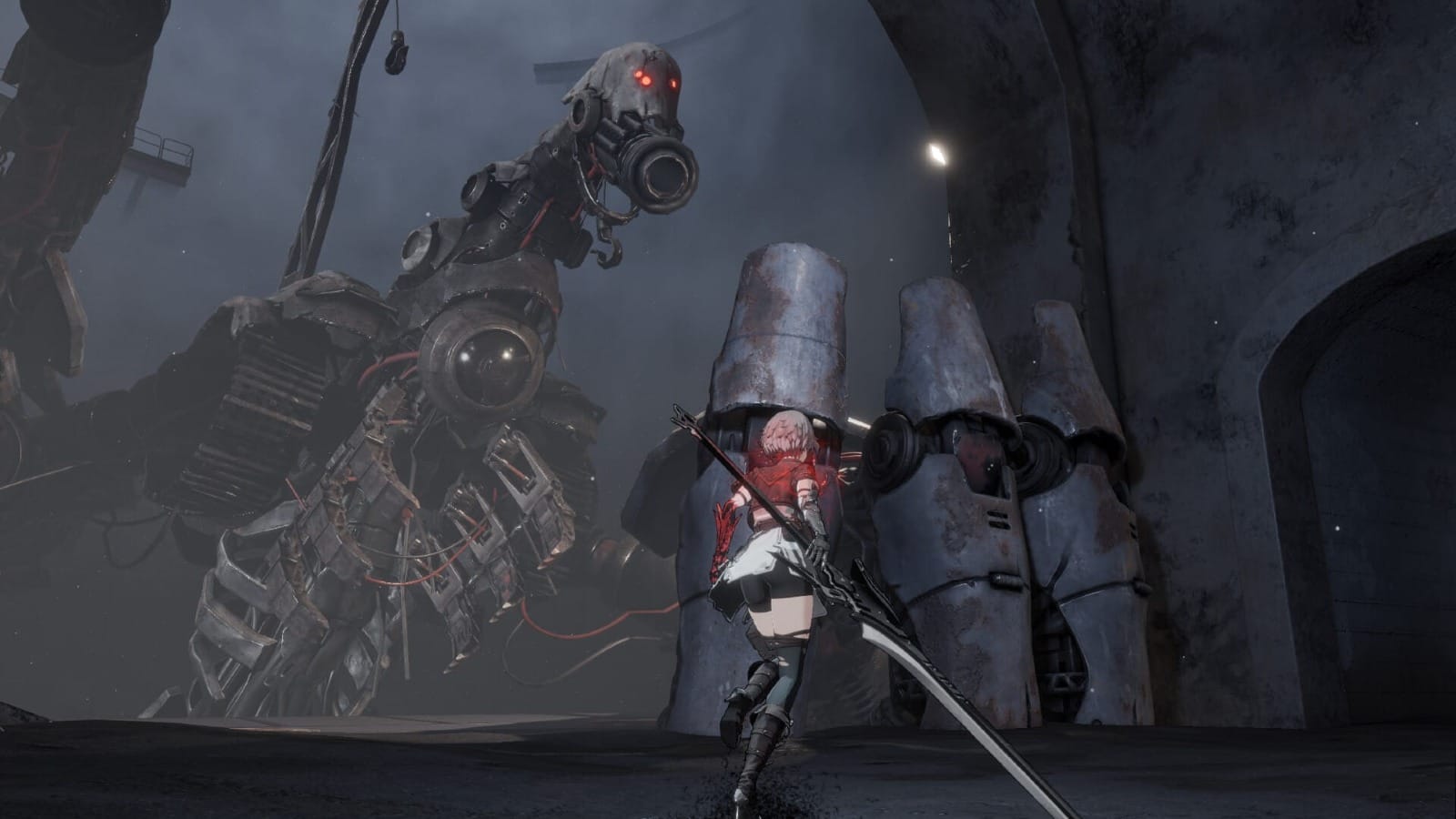
However, the narrative's delivery falls short of its potential. It copies the same environmental storytelling approach, with random NPCs and notes scattered throughout the world. The voice acting is frequently awkward, with Arissa's monotone delivery being the main offender. Cutscenes suffer from stiff animation that fails to convey the emotional weight of pivotal moments. But then again, the story is usually an afterthought in games like this.
AI Limit's most innovative contribution to the Souls-like formula is its replacement of the traditional stamina bar with a Sync Rate system. You heard that right, there’s no stamina system here! The Sync Rate bar increases as you land attacks and decreases when you take damage. It affects both the damage you deal and your ability to use special skills. Managing this unique system creates an interesting risk and reward dynamic that encourages aggressive play instead of defensive.
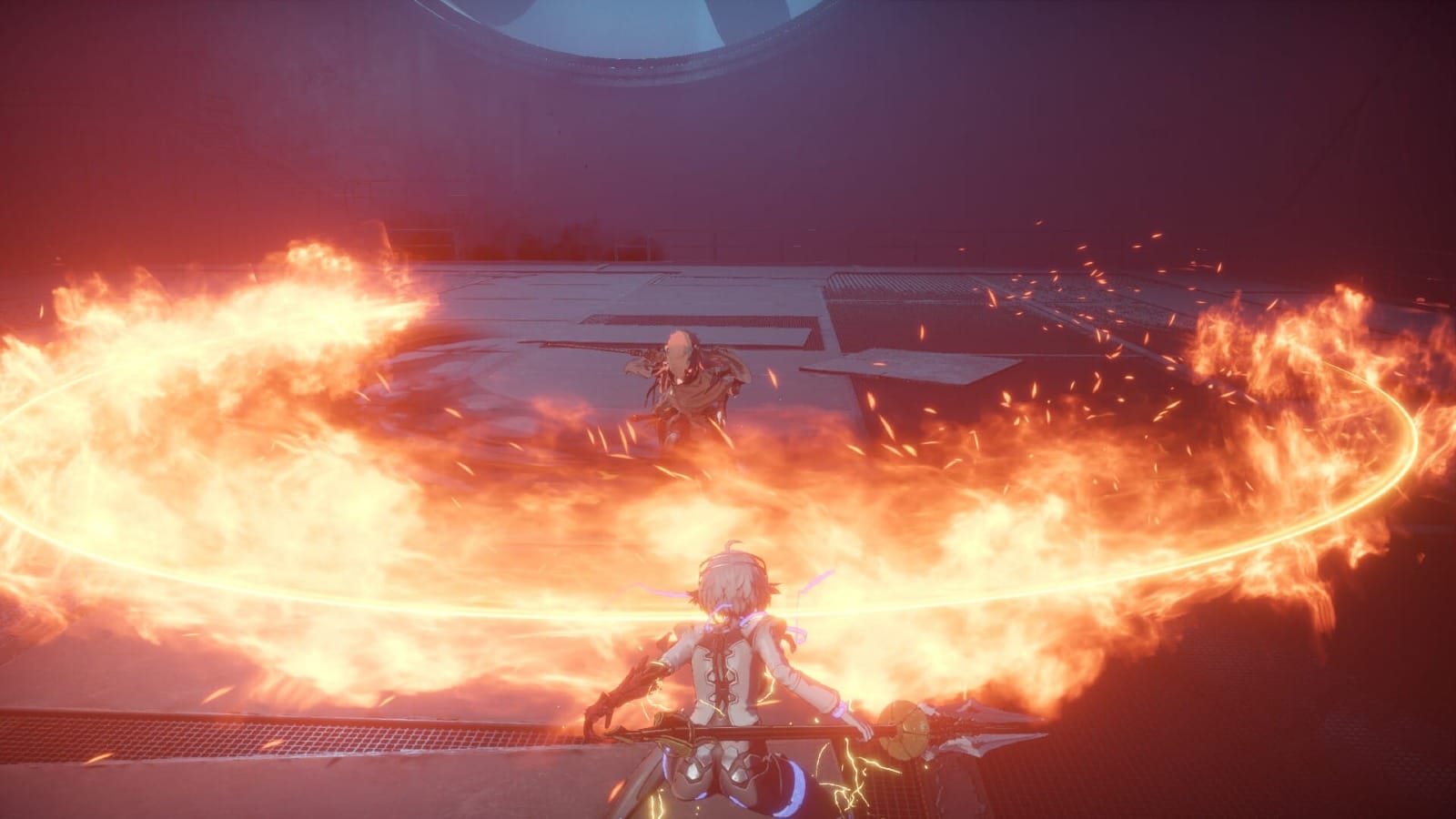
Combat itself is responsive and fluid, with tight controls that make movement feel snappy and intuitive. The game offers a variety of weapons, ranging from swords and lances to drills and halberds, each with unique attack patterns and special abilities that allow for build experimentation. You can reallocate your stats freely as well. Armor doubles as outfits, as the game supports the “Fashion Souls” tradition, with diverse stat bonuses and anime-inspired visuals. Yes, there’s a maid outfit if you must ask.
Alongside armor are nuclei and spell frames. Nuclei functions as a core component of the progression system, affecting how much currency you retain upon death. Equipping different nuclei changes the retention rate and absorption rate. Spell frames determine whether or not you can parry or shield, and is an equip-able ability on Arrisa’s red arm.
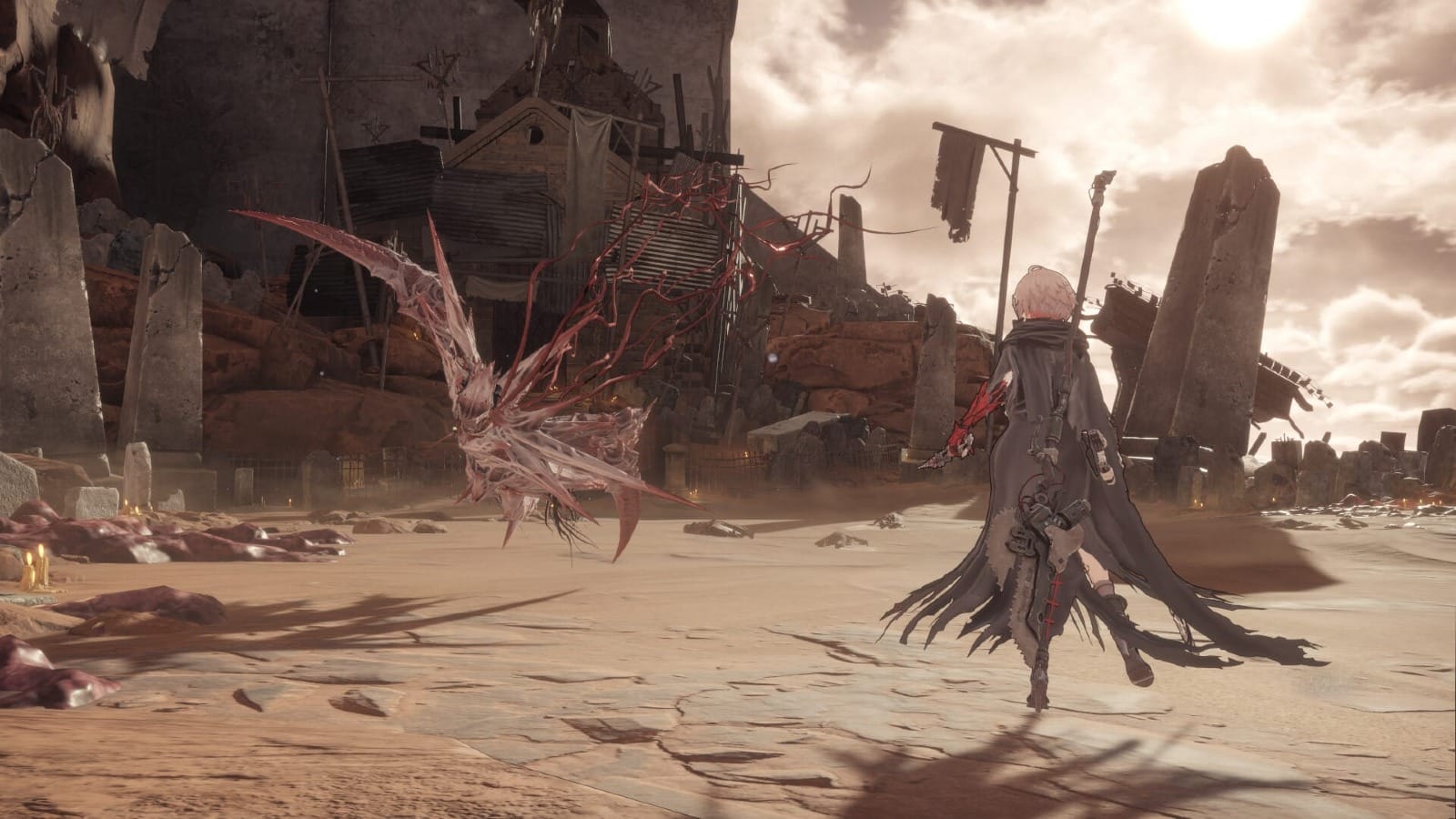
Unfortunately, the game's challenge level doesn't quite match its mechanical ambitions. Many enemies and bosses feel predictable and lack the threatening presence found in the genre's best offerings. This isn’t necessarily a negative thing, as it can also be seen as a more approachable introduction to the genre. The timing windows for dodges and parries are inconsistent, making some encounters feel too easy and others feel too unfair.
Bosses are, of course, the highlights of combat, and the game features 20 main story bosses and 4 hidden ones. Many bosses feature multiple phases, with some becoming more aggressive or changing their attack patterns entirely after losing a certain amount of health. Pattern recognition is the name of the game.
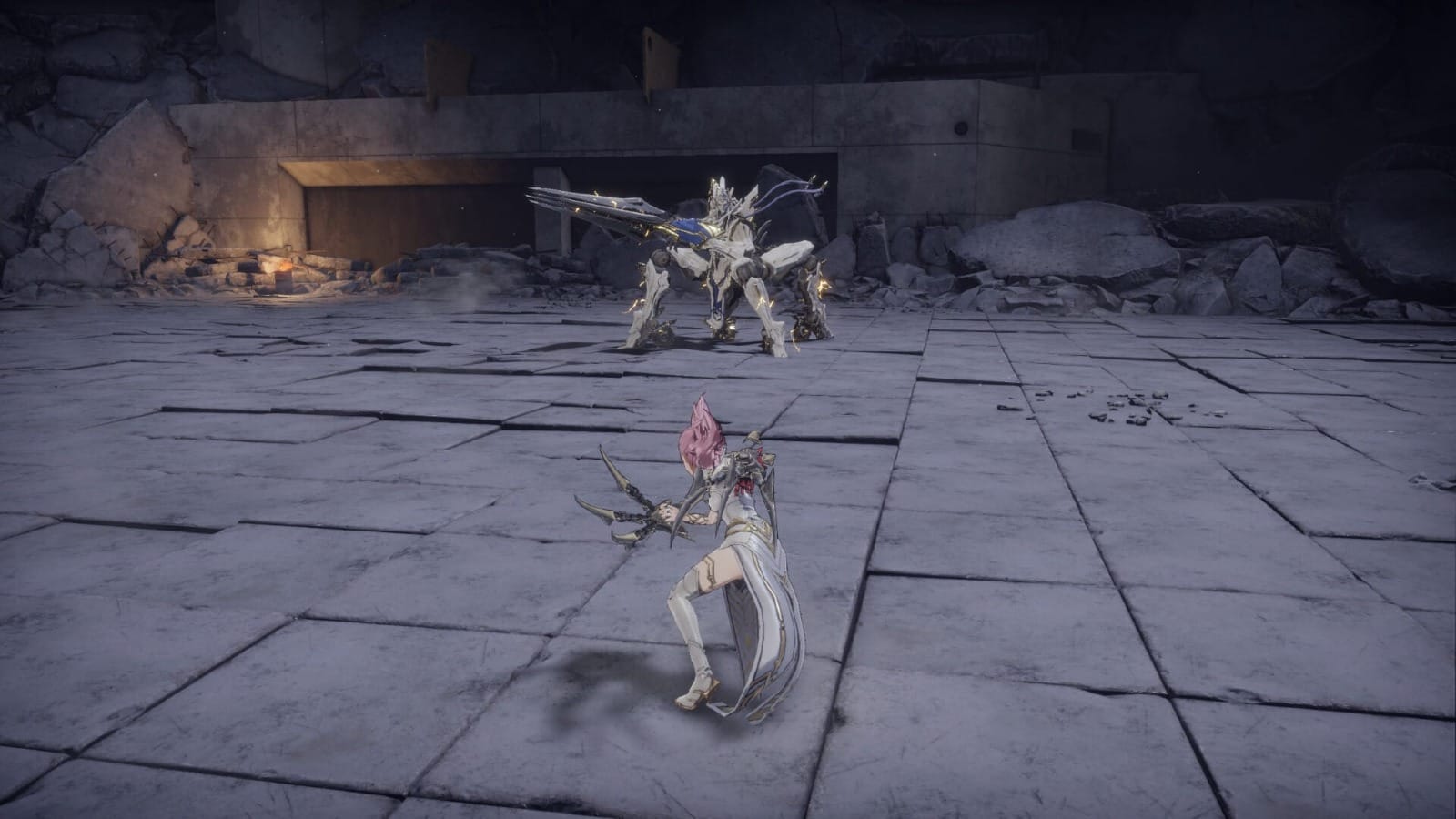
In traditional Dark Souls fashion, exploration features areas with a series of pathways, ladders, and locked doors that recurse backwards. As you venture deeper into each area, you'll discover shortcuts in the form of keys or lifts that allow for swifter navigation back to previously visited locations. This interconnected design creates a satisfying sense of progression as you gradually unlock new paths and connect different sections of the map. You are also frequently rewarded with hidden items, optional bosses, and secret passages that add depth to the experience.
While most bugs and glitches have been patched already, AI Limit still suffers from a couple hiccups that distracted me from the overall experience. There were plenty of moments when the lock on system failed, along with random crashes back to the PS5 home menu or the audio not working properly. The most egregious one was an infinite loading screen.
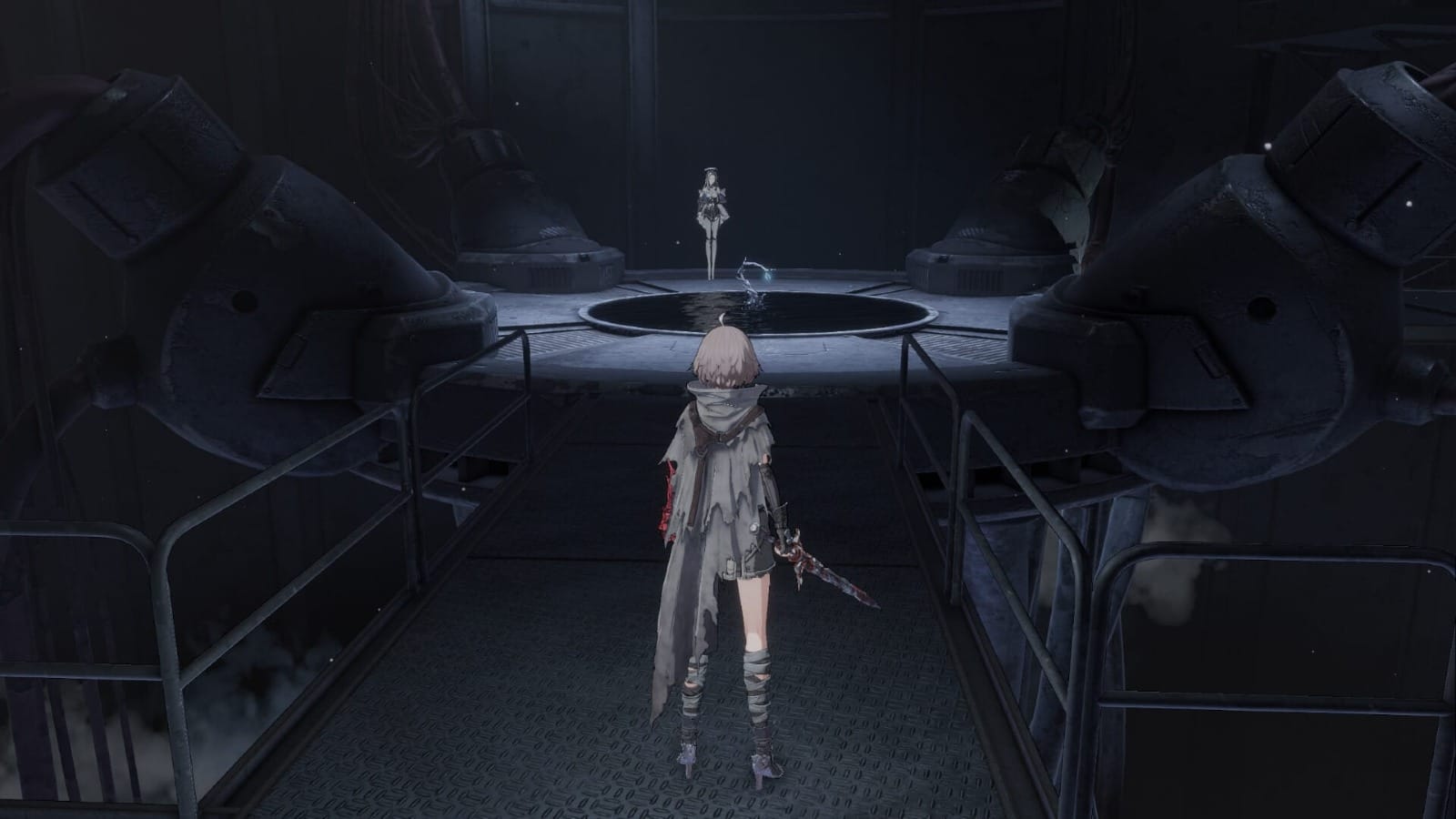
Visually, AI Limit presents a mixed bag. The anime-inspired art style creates a distinctive aesthetic that works well for the character designs and combat animations. The game manages to create some genuinely beautiful vistas despite its modest budget. However, the graphical quality is inconsistent with some areas suffering from blurry textures and less polished presentation. The animation quality varies dramatically between combat and cutscenes, with the latter often appearing stiff and unnatural.
The audio design, on the other hand, is unremarkable at best. The music fails to leave a lasting impression, with boss themes lacking the memorable quality that defines great Souls games. Voice acting ranges from solid to awkward, with many performances undermined by stilted delivery and dialogue that doesn't always match the subtitles. This not to mention the sound glitches that occurred occasionally.
For Souls-like diehards seeking a new challenge, AI Limit provides a serviceable if unexceptional experience that might satisfy the craving for more dodge-rolling and boss-slaying. For newcomers to the genre, the more forgiving difficulty curve and unlimited stamina might offer a gentler introduction to Souls-like mechanics. That being said, the game offers 15-20 hours of content at a more-than-fair price of $34.99. You’d get even more bang for your buck with New Game Plus mode as well.
AI Limit
Good
AI Limit represents a commendable effort from a small indie development team tackling an incredibly challenging genre. The game flashes moments of genuine creativity, but it lacks the polish and inspiration needed to stand alongside the pinnacle titles of the genre.
Pros
- Stamina-free and fluid combat
- Fashion Souls
- Build customization
Cons
- Technical bugs
- Inconsistent difficulty
- Underwhelming narrative
This review is based on a retail PS5 copy provided by the publisher.





















